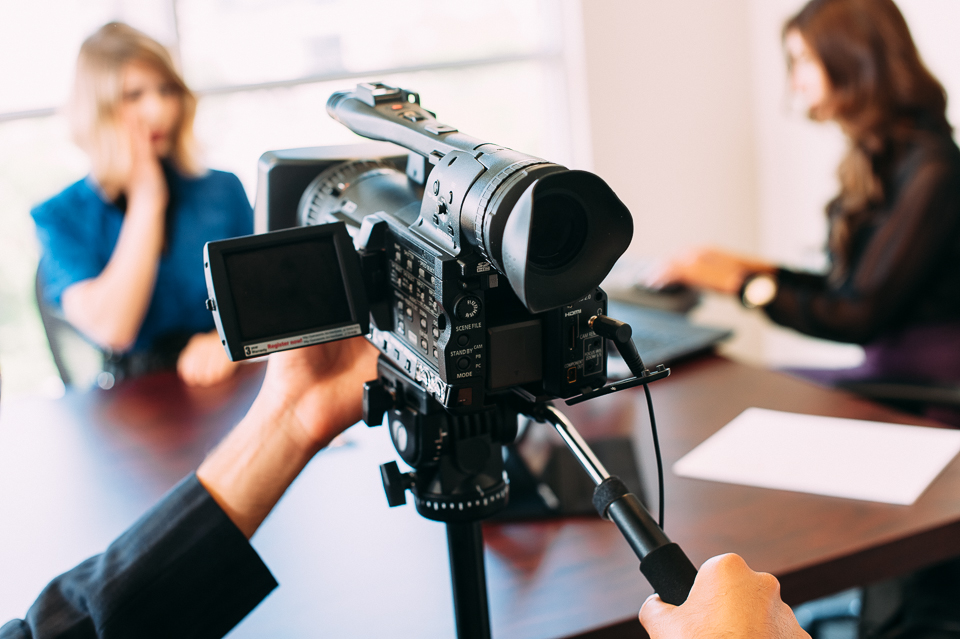Advanced Legal Videography for Mediations.
Advanced Legal Videography for Mediations.
Blog Article
The Role of Legal Videography in Depositions and Tests
Lawful videography has actually arised as an essential tool in both depositions and tests, giving a multifaceted approach to documenting witness testimonies. As legal specialists progressively recognize its value, it prompts a much deeper evaluation of exactly how these visual records can affect juror perceptions and trial results.
Significance of Legal Videography
Legal videography plays a critical duty in the documents and discussion of depositions and trials. This specialized field incorporates technical abilities with lawful expertise to create a trustworthy document of process that can considerably affect case results. The aesthetic facet of legal videography improves the understanding of witness testament, permitting jurors and judges to observe not just the talked words yet also the demeanor, feelings, and body language of the witnesses.

The value of lawful videography prolongs beyond the courtroom; it also plays an important duty in protecting evidence for future referral, whether for allures or further lawsuit. Its integration right into the legal procedure is important for making certain a reasonable and precise depiction of the realities, eventually contributing to the search of justice.

Process of Legal Videography
While capturing the nuances of depositions and trials, the process of lawful videography entails numerous essential actions that make sure top quality, precise recordings. At first, an expert lawful videographer prepares by reviewing the situation products and comprehending the certain requirements of the deposition or test. This prep work consists of familiarizing themselves with the participants and the context, which helps in catching important details.
On the day of the recording, the videographer establishes up the needed equipment, which usually consists of high-definition video cameras, microphones, and proper lighting. Making certain optimum angles and audio high quality is essential, as it straight affects the performance of the recording. The videographer interacts with lawyers and individuals to establish protocols, guaranteeing that everybody understands the recording procedure.
Throughout the deposition or trial, the videographer meticulously tape-records the procedures, paying attention to both spoken and non-verbal cues. legal videography. This consists of capturing the demeanor and responses of witnesses and lawyers. After the session ends, the videographer may edit the video for quality and conformity with legal standards, producing an end product that precisely shows the process for future reference and use in legal contexts
Benefits in Depositions
The consolidation of videography in depositions uses numerous advantages that boost the total process of gathering evidence. One main advantage is the capacity to catch witness statements with visual and acoustic fidelity, offering a more exact depiction of the witness's demeanor, tone, and body movement. This multidimensional strategy enables lawyers and courts to assess credibility better than standard written records alone.
Additionally, videographed depositions function as a powerful tool for maintaining statement. Must a witness ended up being not available for trial, their videotaped deposition can be played in court, making certain that their proof remains obtainable and appropriate. This facet dramatically minimizes the danger of shedding see post essential information that might influence instance outcomes.
In addition, the usage of legal videography promotes far better preparation for attorneys. Examining video footage enables lawful teams to examine and refine their approaches, recognizing staminas and weaknesses in their cases. This preparatory advantage can cause even more compelling discussions in court.
Finally, videography improves the total professionalism and trust of the deposition process, instilling confidence in customers relating to the thoroughness of their lawful depiction. By leveraging innovation, attorneys can considerably improve the effectiveness of depositions.
Effect on Trials
In several trials, the integration of videography can significantly affect the discussion of proof and the jury's perception. see this site Legal videography records witness testaments and essential evidence in a vibrant style, enabling jurors to engage with the product on multiple degrees. This visual element enhances the narration facet of a test, providing context and psychological vibration that standard text-based evidence may lack.
In addition, video recordings can work as effective tools for impeachment during interrogation. When inconsistencies occur in between a witness's previous statements and their court testimony, video clip evidence supplies an unbiased recommendation that can sway jurors' point of views. This immediacy and clearness can strengthen the reliability of a celebration's narrative while simultaneously threatening opposing debates.
Additionally, making use of videography can aid streamline complex information, making it a lot more easily accessible to jurors that might have a hard time to comprehend complex details provided entirely with verbal testament. By combining visuals with auditory information, lawful videography can improve retention and understanding, inevitably affecting the court's decision-making process. As a result, the impact of videography in trials expands past mere aesthetics; it plays a critical duty fit the legal landscape and outcomes.
Future Trends in Legal Videography
As we look towards the future of legal videography, several emerging fads guarantee to reshape its duty within the court room. One substantial trend is the integration of expert system (AI) in video analysis and modifying - legal videography. AI can enhance the process of determining essential minutes in videotaped depositions, permitting lawyers to promptly access relevant web content, thus improving effectiveness in instance preparation
Furthermore, the surge of virtual fact (VIRTUAL REALITY) and increased truth (AR) innovations is anticipated to change just how jurors experience proof. By immersing jurors in a substitute environment, these innovations can supply a view publisher site much more extensive understanding of complex scenarios, resulting in more educated deliberations.

In addition, the boosting need for remote depositions, accelerated by the COVID-19 pandemic, will likely proceed. Legal videographers will require to adapt to brand-new software program and systems to guarantee top notch recordings in virtual setups.
Lastly, the expanding emphasis on information safety and security will require more stringent protocols for saving and sharing video clip evidence. As the legal landscape advances, legal videographers need to stay abreast of these trends to maintain their relevance and effectiveness in the judicial process.

Conclusion
In summary, legal videography serves a vital feature in the judicial procedure, enhancing the honesty of depositions and tests. As innovation continues to progress, lawful videography is poised to more change its function within the lawful landscape.
Report this page